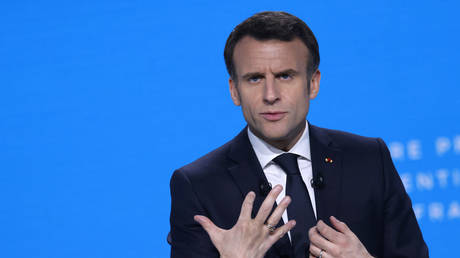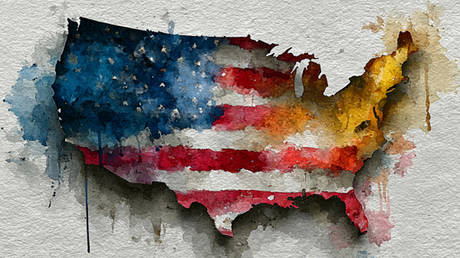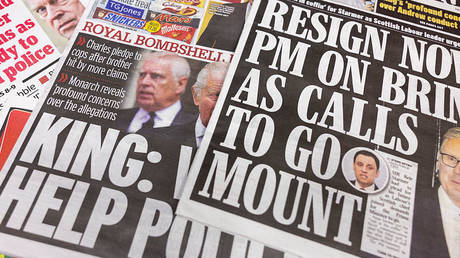
France’s president has said he stands by his 2019 characterization of NATO as ‘brain dead’
Russia’s ongoing military offensive in Ukraine has delivered an “electroshock” to NATO, France’s President Emmanuel Macron said during a press conference on Thursday. The remark came in response to a journalist’s question regarding the president’s 2019 characterization of the military alliance as “brain dead,” and whether the French head of state was still of that opinion.
Macron said that he stood by his initial ‘diagnosis,’ taking “full responsibility” for his words; however, according to the French president, Russia’s military campaign against Ukraine has been a wake-up call for NATO.
Macron pointed out that the “war launched by President Putin” at the alliance’s doorstep created an “unusual threat which gives a strategic clarification to NATO.”
He also said that the military alliance in its current form would not cut it, standing by his earlier calls for reform.
In November 2019, Macron told The Economist that the world was witnessing the “brain death of NATO.” The French president also urged Europe to “wake up” after the Trump administration had “turned its back” on European allies, as Macron had put it. He went on to call into question the effectiveness of NATO’s Article Five, under which an attack on one member state would be seen as an attack on the entire military bloc. He concluded that European member states should “reassess the reality of what NATO is,” given America’s shaky commitment to its allies.
At the time, his blunt remarks drew criticism from the likes of then-US Secretary of State, Mike Pompeo, and then-Chancellor of Germany, Angela Merkel.
In contrast to his 2019 interview, Macron’s assessment of the situation on Thursday was not all doom and gloom. For example, he emphasized that work to boost the EU’s defense has been underway. According to the French president, at next week’s European Council in Brussels, the bloc’s member states will “conclude” work on its “strategic compass” – an initiative spearheaded by France and aimed at enhancing EU military capabilities. On top of that, Macron noted, a NATO summit in June is expected to “redefine the alliance’s frameworks.”
Speaking at the Ottawa Conference on Security and Defense last Wednesday, NATO’s Secretary General Jens Stoltenberg called for a “serious assessment of the longer-term adaptation of NATO – our posture, our presence and also how we can strengthen our ability to reinforce quickly.” The military alliance’s chief said that, in light of Russia’s military campaign against Ukraine, NATO was “faced with a new reality, a new security environment, a new normal.”
Some NATO member states, such as Germany and Poland, have already announced plans to increase defense spending. Meanwhile, NATO has beefed up its presence on its eastern flank, sending troops and military hardware to Romania.




